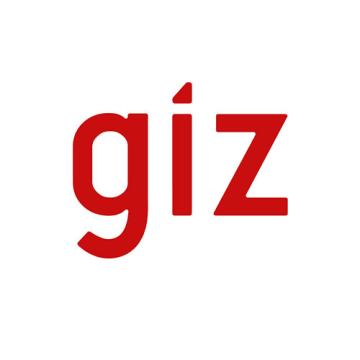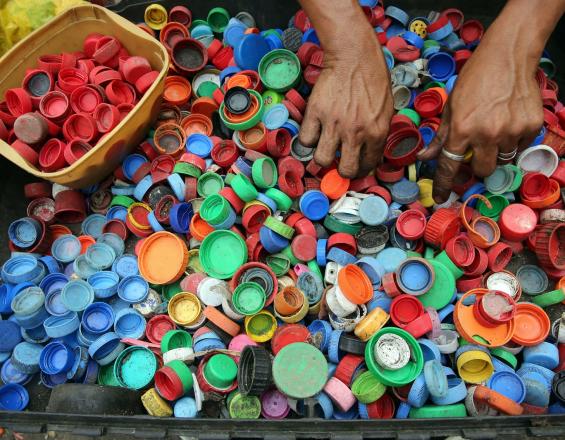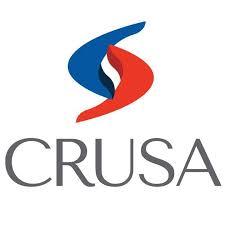
Transforms Waste into Resources

In Costa Rica, the waste sector accounts for 15.7% of the country's greenhouse gas emissions. Every day, 4,000 tons of waste are produced, but only a small part is properly managed in landfills and dumps. In addition, in many communities there is no differentiated collection service, and only 3.9% of the waste is recycled.
TRANSFORMA sought to improve Integrated Solid Waste Management (ISWM) in the municipalities by strengthening the capacities of municipalities through technical assistance in ISWM and reduction of Greenhouse Gases (GHG) including selective collection systems, treatment and recovery of solid waste; articulation with the business sector and promotion of citizen participation.
Thanks to this initiative, 15 innovative projects were developed with a potential impact of 44,000 tons CO2e reduction in the next 10 years.
Context
Challenges addressed
Environmental:
- The waste sector ranks second in greenhouse gas (GHG) generation.
- Environmental contamination from leaking solid waste and leachate in illegal disposal sites (open dumps).
Social:
- Weak capacities of local governments for project design and management.
- Little information available. Information related to solid waste generation is disaggregated in different institutions and is difficult to access.
Economic:
- There are few experiences working on waste valorization.
- Weak collection by local governments.
Location
Process
Summary of the process
The main components of this solution are, on the one hand, technical capacity building and, on the other, the financial component. It also presents the strengthening of communication capacities as a cross-cutting component that affects both technical and financial aspects.
The greatest strength of this experience is that work was done first to strengthen the capacities of municipalities and companies for project management, and GHG inventories were carried out to identify their main sources of emissions and, therefore, their mitigation opportunities. And finally, we accompanied them in the process of preparing technical proposals so that they could bid for the non-reimbursable funds.
Building Blocks
Technical Training
Municipal capacities in Integrated Solid Waste Management (ISWM) were strengthened throughout the waste service chain to facilitate the implementation of improvement projects focused on reducing GHG emissions, which are supported by the Project.
A course on Sustainability in ISWM was conducted, in which 15 municipal managers were trained on key topics such as life cycle analysis, circular economy, recycling value chain, public-private partnerships, and project formulation and financing.
Information was also gathered for the preparation of 15 cantonal GHG inventories, with their respective action plans and pre-feasibility studies for their implementation.
In addition, 14 municipalities received training in logistical and operational improvements in solid waste management, while 12 companies and 15 municipalities received training in administrative, operational, regulatory, tariff and marketing aspects. A total of 133 people participated in the process of exchanging experiences.
Enabling factors
- The support of a Project that technically and financially backs the training processes is a fundamental for carrying out the different capacity building activities.
- Collaboration between municipalities, organizations, companies and other stakeholders is essential to share knowledge and resources, which allows for the successful implementation of the activities
- Having available information is an essential factor when collecting data for the preparation of cantonal GHG inventories and pre-feasibility studies.
Lesson learned
- There is interest on the part of municipalities and private companies to continue training on the subject and to have exchange spaces where they can find support to solve problems associated with integrated waste management.
- People who work in small and medium-sized collection centers and in companies related to IWM have limited training opportunities to make their businesses more sustainable and improve their professional development.
- It is necessary to work with a circular economy approach, and to enhance capacity building in entrepreneurship and innovation in grassroots waste pickers and small waste managers, so that they can perceive their work as a viable business instead of relying solely on government assistance.
Communication Tools for Local Governments
Support was provided to strengthen the communication capacities of local governments, providing tools for effective communication with the participation of the inhabitants of the canton.
An initial diagnosis was made to identify shared challenges among different local governments, highlighting the absence of a strategy to guide the different communication actions in waste management, which reduces the impact and delays the education and awareness-raising process that is being pursued.
This process was built in a joint and participatory manner, improving communication and bringing the canton's population closer to simple solutions to improve integrated waste management and the quality of life in their communities.
A Communication Toolkit on Integrated Waste Management was also developed to support the municipalities in their communication, awareness-raising and call to action aimed at the citizens of their cantons, since citizen participation is a fundamental and essential element of effective integrated solid waste management.
Enabling factors
- The content responds directly to the needs identified through a prior consultation process aimed at both municipalities and technical experts in the field.
Lesson learned
- In order to generate changes in behavior and habits, continuous and persistent communication and educational processes are required.
- It is essential that local governments invest in waste composition and characterization studies or in reports or diagnostics that allow them to communicate with data.
- When formulating a message, what is said is as important as the tone used. Eco-angst and scolding should be avoided.
- The same language and concepts should be used when educating about solid waste. When multiple voices are heard, confusion is generated.
- Develop communication actions where citizens go from being receivers of a message to co-creators of it.
Financial support for project development
Once the pre-feasibility studies were completed, technical and financial cooperation was provided to 15 projects throughout the country, mobilizing both public and private investment funds (counterpart resources).
Two calls were made to access non-reimbursable funds, and projects proposed by 8 municipalities with 3 consortiums, 1 municipal council, 2 private companies, 2 organizations, 1 Integral Development Association and 1 ASADA were developed.
Enabling factors
- Develop prior capacity building work to ensure the successful implementation of the projects.
- Before issuing the call for projects, work should be done with the municipalities and companies to prepare pre-feasibility studies that are consistent with their mitigation needs.
- It is recommended to have a GHG Emissions Inventory that functions as a baseline to measure the results of the investments made with non-refundable funds.
Lesson learned
- Capacity building and parallel technical and financial support were fundamental for the success of this type of Grants.
- It is important to create spaces for the exchange of experiences and lessons learned in this type of process.
- When evaluating a technical project proposal, it is important to assess not only its financial viability, but also to assign a value to the social and environmental impacts.
Impacts
-Environmental
-Reduction of GHG emissions and other pollutant gases.
-Reduction of odors and leachates associated with poor waste management.
-Increased useful life of sanitary landfills.
-Social:
-Creation of formal employment and sources of income associated with recycling.
-Reduction of health risks for the population.
-Environmental education and associated cultural change
-Economic:
-Material and fuel savings as an effect of recycling.
-Extending the useful life of sanitary landfills and the
-Reduction of costs for final waste disposal and new solutions for municipalities to revalue waste.
Beneficiaries
- More than 23 thousand direct beneficiaries
- 15 projects received non-reimbursable funds.
- 15 municipalities and one municipal council, 2 private companies, 2 organizations, 1 Integral Development Association and 1 ASADA benefited from the project.




